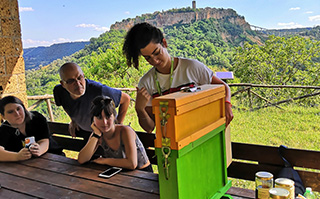Environment, natural science, and biotechnology abroad
International experience is valued by employers.
Yes, it will be fun to go overseas and see a new culture and way of life. And yes, you will continue to learn new skills. In fact, employers reported in a national survey that a job seeker’s cross-cultural understanding is as essential as their technical aptitude.
With USAC, you can stay on track with your degree and give your resume a boost, all while getting the experience of a lifetime. So, what are you waiting for? Discover popular environment-related courses below and get started today.
Stay on track
USAC offers two different program models - Specialty and Partnership. You can choose to align your study abroad experience with your academic needs by browsing popular course subjects and their available program locations, below.
- Specialty Programs are run by an on-site USAC Resident Director (RD) and may include classes with other USAC students.
- Partnership Programs are run by the international programs office and staff at the foreign university.
- Biodiversity
- Biology
- Environmental Policy
- Marine Science
- Natural Resources
- Plants and People
- Sustainability
- Tropical Landscapes
- Agriculture
- Animal Science
- Aquaculture
- Conservation
- Ecology
- Environmental Science
- Food Science
- Geology
- Plant Science
- Soil Science
- Sustainability
- Water Resource Management
"Classes provided useful information [for my career] and I gained scientific research writing skills."
— Allison W., USAC Auckland
Popular courses in Environment, Natural Science, and Biotechnology
Italy: Viterbo
Food and Culture

Taught by Visiting Professor Maria Giovanni, California State University, Chico
You are what you eat. Food is a topic everyone from every ethnicity has personal experience with; it is so common that its cultural connotations tend to be overlooked. Food is often related to identity and ancestry, whether that’s positive or negative. Let’s explore the general topic of food and culture and then dive into the specifics of identity and meaning.
As a food scientist with training in nutrition, Dr. Giovanni’s career has spanned education, government, and the food industry. Her research uses sensory evaluation to improve acceptance of diversity. Her interactive classes engage students and use food to link people together and others to create healthy people and a healthy planet.

